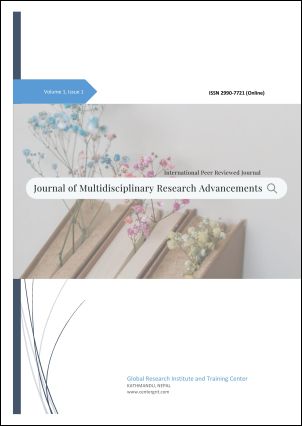Usage of Personal Protective Equipment by Patient Care Nurses to Reduce Occupational Health Risk: Challenges and Related Policy Measures in Nepal
DOI:
https://doi.org/10.3126/jomra.v1i1.55099Keywords:
Healthcare, Nepal, Nurse, Occupational health, PPEAbstract
Personal protective equipment (PPE) plays a critical role in protecting healthcare workers from occupational hazards, including infectious diseases, chemical exposures, and physical injuries. In Nepal, patient care nurses face significant occupational health risks due to limited access to PPE and inadequate training on their proper use. This paper aims to explore the challenges faced by patient care nurses in Nepal in using PPE and to propose policy measures that can improve their occupational health and safety. Using systematic literature review, the study found that the availability and quality of PPE were major challenges faced by patient care nurses in Nepal. Inadequate training on the proper use of PPE and a lack of awareness about the risks of occupational hazards further increased the vulnerability of patient care nurses. To address these challenges, the paper proposes several policy measures, including improving access to high-quality PPE, providing comprehensive training on the proper use of PPE, and raising awareness about occupational health risks among healthcare workers and policymakers. These measures can significantly reduce the risks of occupational hazards faced by patient care nurses in Nepal and improve their overall occupational health and safety. The findings demonstrate the urgent need for policymakers and healthcare organizations to address the challenges faced by nurses in accessing and using appropriate PPE. By implementing the proposed policy measures, healthcare organizations and policymakers can ensure that patient care nurses are adequately protected from occupational health risks, enabling them to provide high-quality care while staying safe and healthy.
Downloads
Downloads
Published
How to Cite
Issue
Section
License
Copyright (c) 2023 Suja Giri, Arati Adhikari, Ashish Khanal, Paras Chipalu, Prasamsha Aryal, Pritanjali Pandey

This work is licensed under a Creative Commons Attribution-NonCommercial 4.0 International License.
This license allows reusers to distribute, remix, adapt, and build upon the material in any medium or format for non-commercial purposes only, and only so long as attribution is given to the creator.




